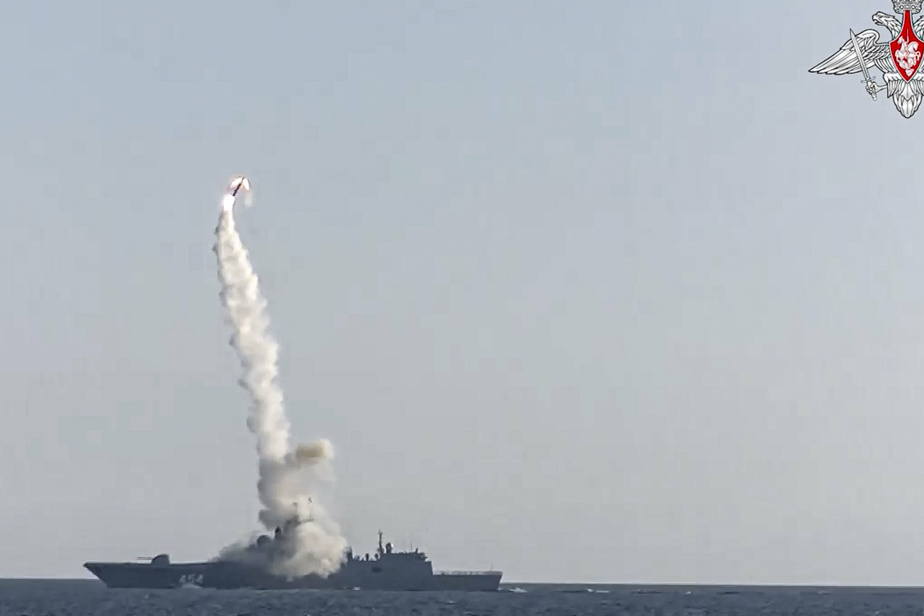(Moscow) Russia announced, on Monday, that it has successfully tested the new hypersonic cruise missile Zircon, one of the weapons developed by Moscow, confirming that it has no equal in the world.
“The frigate ‘Admiral Gorchkov’ launched a hypersonic Zircon missile from the White Sea at a land target located on the coast of the Barents Sea,” the Russian Defense Ministry said in a statement.
According to this press release, the missile, which flew at a speed of Mach 7, “successfully reached the target located at a distance of 350 kilometers.”
The first official launch of the Zircon missile dates back to October 2020, and Russian President Vladimir Putin hailed the “great event” for “the whole country”. At least two more tests have taken place since then, each time from Admiral Gorchkov.
The Pentagon declined to comment on the test itself, but its spokesman John Kirby noted that “Russia’s new hypersonic missiles are potentially destabilizing and pose significant risks” because they can carry nuclear payloads.
“In contrast, the United States is only developing conventional hypersonic strike capabilities,” he added. Therefore, together with our NATO allies, we remain determined to prevent this, while at the same time promoting greater stability in the region.
Against the background of tensions with Western countries, Russia in recent years has multiplied the announcements of new weapons presented by Vladimir Putin as “indomitable”.
Zircon is one of them. With a maximum range of about 1000 km, it is intended to equip surface ships and submarines of the Russian fleet.
Many other weapons such as the Kinjal hypersonic missile for the Air Force or the nuclear-powered Bourevestnik missile.
The new generation of Avangard hypersonic missiles, capable of reaching a speed of Mach 27 and changing course and altitude, was put into service with the Russian army in December 2019.

“Extreme twitteraholic. Passionate travel nerd. Hardcore zombie trailblazer. Web fanatic. Evil bacon geek.”

